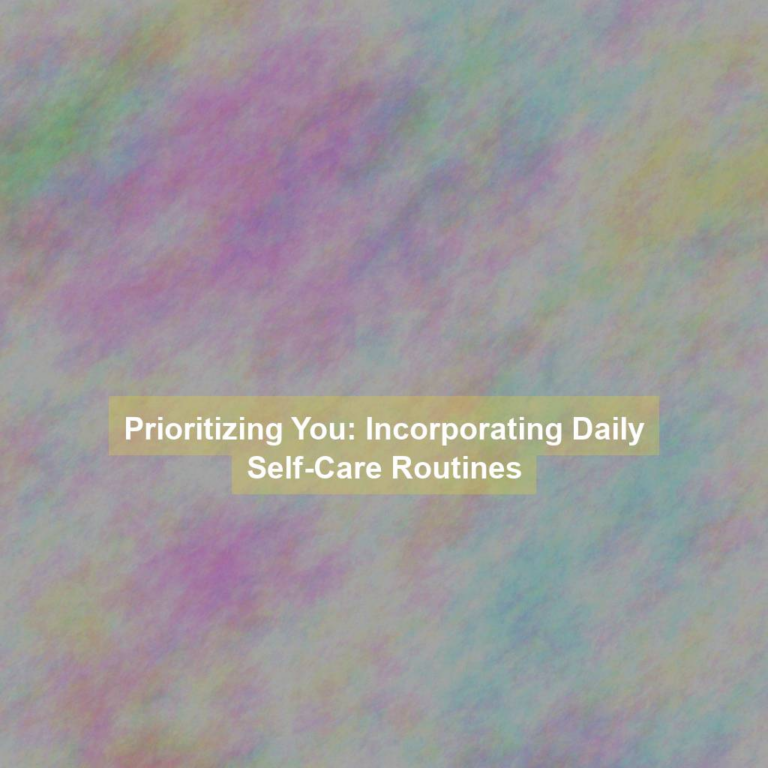So, you’ve been told time and again to put others first, to always be kind and understanding, and to never show weakness.
But what about you? When was the last time you truly nurtured your own self?
It’s time to shift the focus inward and explore exercises in self-compassion that can transform the way you relate to yourself and others.
By taking a moment to understand the power of self-kindness and embracing imperfection, you might just uncover a newfound sense of resilience and empathy that could benefit every aspect of your life.
Cultivating Mindfulness
To cultivate mindfulness, practice being fully present in the moment, observing your thoughts and feelings without judgment. Take a few moments each day to focus on your breath. Notice the sensation of each inhale and exhale. When your mind starts to wander, gently bring your attention back to your breath.
Engaging in daily activities mindfully can also help. Whether it’s eating, walking, or washing dishes, try to bring your full awareness to the task at hand. Notice the sights, sounds, and sensations around you. When you catch yourself getting lost in thought, simply acknowledge it and return to the present moment.
Another way to cultivate mindfulness is through body scans. Set aside some time to lie down in a comfortable position and systematically focus on each part of your body, starting from your toes all the way up to the top of your head. Notice any areas of tension or discomfort without trying to change them. Simply observe and breathe into those areas.
Practicing Self-Kindness
Practicing self-kindness involves acknowledging your own worth and treating yourself with compassion and understanding. It means being gentle with yourself, especially in moments of struggle or self-doubt. When you make a mistake or face a setback, respond with kindness rather than self-criticism. Offer yourself the same warmth and acceptance that you’d extend to a friend in need.
Embracing self-kindness also entails prioritizing your well-being and setting boundaries that honor your physical, emotional, and mental needs. This may involve saying no to excessive demands and carving out time for self-care without guilt.
Additionally, practicing self-kindness includes engaging in activities that bring you joy and fulfillment, allowing yourself to pursue your passions and hobbies without judgment. Remember, self-kindness isn’t about being self-indulgent or complacent, but about fostering a nurturing and supportive relationship with yourself. By treating yourself with kindness, you cultivate a positive and resilient inner voice that can guide you through life’s challenges with grace and compassion.
Embracing Imperfection
Embracing imperfection allows you to cultivate resilience and authenticity in your life. It’s about accepting that you aren’t perfect and that’s okay. When you embrace imperfection, you free yourself from the constant pressure to meet unrealistic standards.
This acceptance allows you to approach life with a greater sense of ease and flexibility. Instead of viewing mistakes as failures, you begin to see them as opportunities for growth and learning. Embracing imperfection also fosters a sense of empathy towards yourself and others. It enables you to recognize that everyone has flaws and that these imperfections are what make us human.
Connecting With Common Humanity
When you connect with common humanity, you recognize that shared experiences and emotions unite us all, fostering empathy and understanding. It’s essential to acknowledge that everyone faces challenges, insecurities, and moments of self-doubt. By understanding that these feelings are part of the human experience, you can cultivate a sense of belonging and compassion for yourself and others.
One way to connect with common humanity is by practicing self-compassion exercises in group settings or with a trusted friend. Sharing personal stories and struggles can create a powerful sense of connection and solidarity. It reminds us that we aren’t alone in our experiences and that others can relate to our feelings.
Additionally, engaging in acts of kindness and support for others can strengthen your connection to common humanity. Whether it’s offering a listening ear, providing encouragement, or simply being present for someone in need, these actions reinforce the understanding that we’re all navigating the complexities of life together.
Recognizing common humanity allows you to approach your struggles with greater understanding and kindness, knowing that others share similar experiences and emotions. This realization can alleviate feelings of isolation and foster a sense of interconnectedness with those around you.
Writing Self-Compassion Letters
Consider writing self-compassion letters as a way to express understanding and kindness towards yourself. This exercise involves writing a letter to yourself from a compassionate and understanding perspective, as if you were writing to a friend who’s going through a difficult time. Start by acknowledging your struggles and offering yourself words of kindness and encouragement. Express understanding for the challenges you’re facing and remind yourself that it’s okay to be imperfect and to make mistakes. Be kind and gentle with yourself, just as you’d be towards a dear friend.
When writing the self-compassion letter, try to be as specific as possible about the difficulties you’re experiencing and the emotions you’re feeling. Offer yourself words of comfort and validation, and remind yourself that everyone faces challenges in life. Emphasize the common humanity in our shared experiences of suffering and remind yourself that you aren’t alone in your struggles.
Writing self-compassion letters can be a powerful tool for cultivating self-compassion and nurturing a kinder relationship with yourself. It allows you to practice speaking to yourself with the same care and understanding that you’d offer to a loved one.
Conclusion
So, next time you find yourself being hard on yourself, remember to cultivate mindfulness, practice self-kindness, embrace imperfection, connect with common humanity, and write yourself a self-compassion letter.
By nurturing your self-compassion, you can cultivate a more positive and loving relationship with yourself, leading to greater well-being and resilience in the face of life’s challenges.
So go ahead, be kind to yourself and watch as your inner strength and compassion grow.







